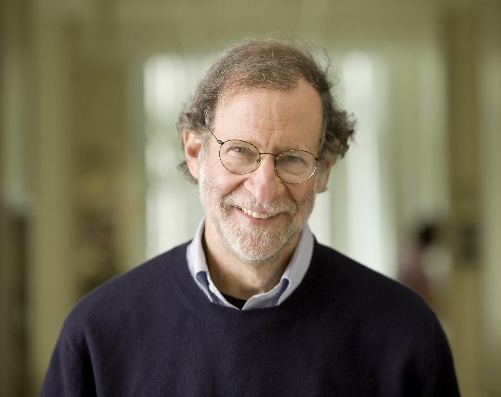The Mortimer M. Bortin Lecture commemorates the Founding Scientific Director of the International Bone Marrow Transplant Registry (IBMTR, forerunner of the CIBMTR), whose foresight and dedication were critical to the development of the CIBMTR as a global resource of HCT research. Lecturers are chosen on the basis oftheir contributions to our understanding of Graft-Versus-Tumor effects and/or the advancement of clinical HCT Research.
Mortimer M. Bortin Lecture Summary by Dr. Paul Martin: Treatment of Chronic Graft‐versus‐host Disease—Progress to Date and Challenges Ahead
This year marks the 40th anniversary of the first publications focused on chronic GVHD in humans. The 2019 Mortimer Bortin Lecture will briefly review key milestones in defining the clinical manifestations of the disease, its evolution from onset to progressive disability, and the principles of clinical management based largely on the empiric use of glucocorticoids and other immunosuppressive treatments. Progress was slow during the first 2 decades after the initial recognition of the disease but has accelerated sharply during the past 2 decades. Studies in humans and murine models have shown that chronic GVHD is a heterogeneous syndrome reflecting distinct contributions from multiple pathogenic mechanisms, involving not only T cells, but also B cells, macrophages, fibroblasts, chemokines and cytokines acting in primary and secondary lymphoid tissues and in target tissues. These insights have guided the development of preclinical and clinical translational studies of new agents for treatment of chronic GVHD, and in one case, these studies have led to regulatory approval.
While we can take great pride in these accomplishments, several major challenges remain ahead. First, the field would benefit enormously from development of effective agents that are well tolerated during long‐term administration, thereby diminishing our dependence on glucocorticoids to control the disease. Second, improved understanding of the relationship between pathogenic mechanisms or biomarkers and specific clinical manifestations of the disease would help inform selection of the right drug for the right patient at the right time, thereby overcoming the limitations of current approaches that rely on serial empirical trial and error. Third, chronic GVHD is a chronic disease, and definitive assessment of a new treatment requires at least a year of follow‐up in clinical trials. Decisions to proceed from phase 2 studies to pivotal phase trials would be much better informed if we had shorter term endpoints that reliably predict longer‐term outcomes. Lastly, current treatments may keep the disease under control until immunosuppressive treatment is no longer needed, but they do not accelerate the development of tolerance. Patients with chronic GVHD would benefit from interventions that shorten the time to immunological resolution of the disease.
Please click here to view the full bio Dr. Paul Martin
In honor of Dr. Thomas, the E. Donnall Thomas Lecture recognizes an eminent physician or scientist, either a clinician or investigator, who has contributed meritoriously to the advancement of knowledge in blood and marrow transplantation.
E. Donnall Thomas Lecture Summary by Dr. Stephen Forman: CMV: From Lethal Transplantation Complication to Potential Anticancer Therapeutic Vaccine
Very early in the development of allogeneic transplantation CMV infection was recognized as a potential lethal complication leading to respiratory failure and death in approximately 20% of patients. The risk factors for this complication was being a CMV seropositive recipient, post-transplant immunosuppression, GVHD and not· developing an adequate donor derived immune responses to limit virus replication and inflammation, particularly in the lung. The work that we did in the 1980's and 90's led to the characterization of the immune dominate epitopes of CMV particularly the PP65 protein which was cloned in our program. Further studies characterized its immunologic significance as stimulating nearly all of the immune functions required to overcome infection and establish a memory pool of T cells. In collaboration with City of Hope investigators, a CMV peptide vaccine was then developed which when studied produced immune responses in transplant recipients and is now being tested to determine if it can prevent viral reactivation and disease. 
Over the last 18 years we have also worked on the development of chimeric antigen receptor 'targeted therapy for a variety of malignancies, including leukemia, lymphoma, brain tumors, myeloma, breast cancer and prostate cancer. We showed that by using CMV specific T cells that had been transduced with a chimeric antigen receptor against CD19 that we could expand those cells by CMV antigen stimulation and the bispecific CAR T cells could mediate both an antitumor response against CD19+ leukemias well as against cytomegalovirus. These CART cells will be tested in the post-transplant setting to decrease the chances of relapse of CD19 positive ALL and also reduce the chances for CMV disease, each augmented by post-transplant vaccination.
Please click here to view the full bio for Dr. Stephen Forman

